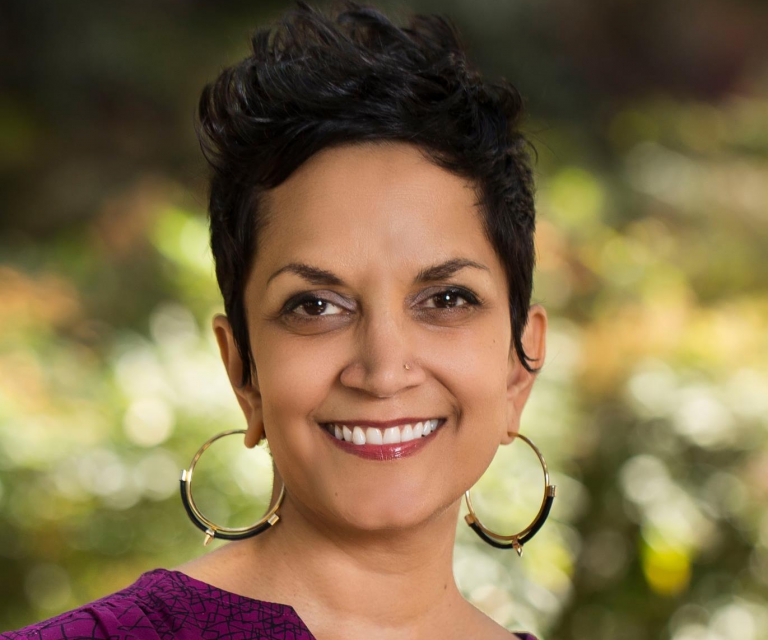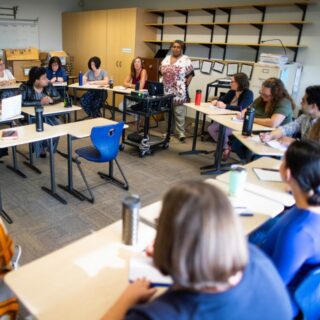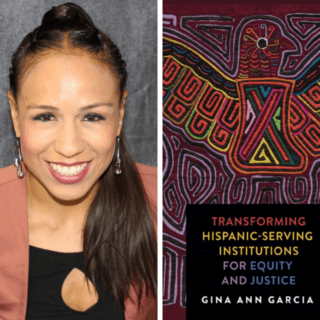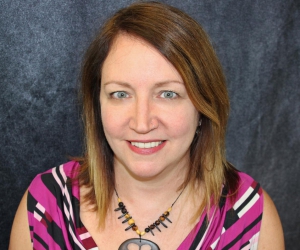
Learning, Struggle, and Settler Colonialism: New Book by Leigh Patel
“Learning is bigger than these forms of oppression, and I refuse to cede it to such confines.”
Leigh Patel, a professor in the University of Pittsburgh School of Education’s Department of Educational Foundations, Organizations, and Policy, makes that moving statement throughout her new book, “No Study Without Struggle: Confronting Settler Colonialism in Higher Education” (Beacon Press, July 2021).
“I love this quotation because it reminds me that scholarship is everywhere, and is being created by people without initials of academic credentials listed after their names,” says Patel. “It grounds me in the purpose of education, which is to change the world and is not to simply have students go through required motions to complete a degree.”
As an education scholar, Patel has focused on freedom struggles for decades. Through research and interviews with activists of several organizations and movements, her new book “introduces some people and strengthens others about settler colonialism as a theory that helps us to understand why things are the way they are,” says Patel.
“No Study Without Struggle” delves into the importance of understanding the relationship between the struggle and study, and how this understanding is vital for societal improvement. According to Beacon Press, the book “examines how student protest against structural inequalities on campus pushes academic institutions to reckon with their legacy built on slavery and stolen Indigenous lands.”
Patel explains that social movements have always included a political education in which the organizers read texts with each other.
“Prior to the formation of the Black Action Society student group at the University of Pittsburgh, student activists informed their understandings and practices by studying texts that were not housed at Pitt but were in Black-owned bookstores in the Hill District, the East Side, and Homewood,” says Patel. “When universities have widened their doors to students who do not come from the high-power dominant population, it has been in response to these study groups who read and debated vigorously what was needed to be free.”
As Pitt Education’s mission-vision calls for educators to “disrupt and transform inequitable educational structures,” Patel argues that the struggle and protests on campuses serve as a starting point for higher education to confront settler strategies that have blurred the histories in these spaces.
“Even though our societal institutions are shaped by the ongoing logics and practices of settler colonialism, learning still happens,” says Patel. “It occurs in study groups, in students’ conversations after class, etc. I stay with the field of education because I simply refuse to concede to projects of oppression. Learning is much bigger, more unruly, and makes far too much good trouble than a test.”
Learn More
Learn more about and purchase “No Study Without Struggle: Confronting Settler Colonialism in Higher Education.”
Read about the school’s commitment to equity and justice.




